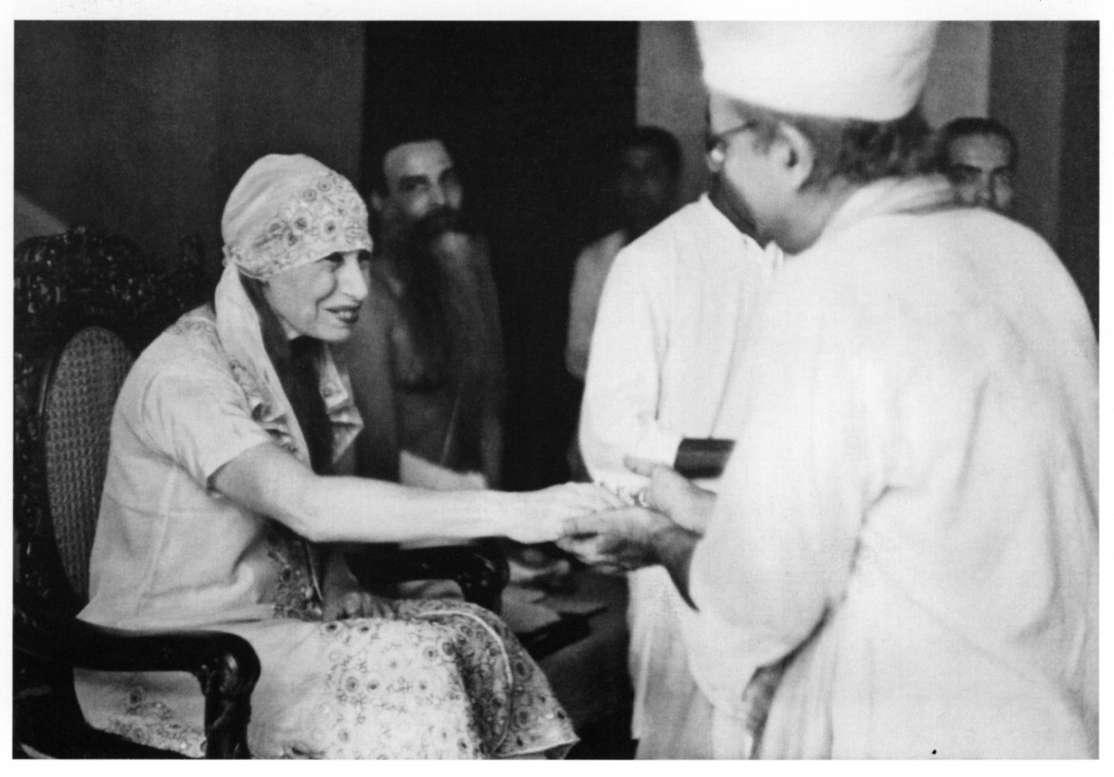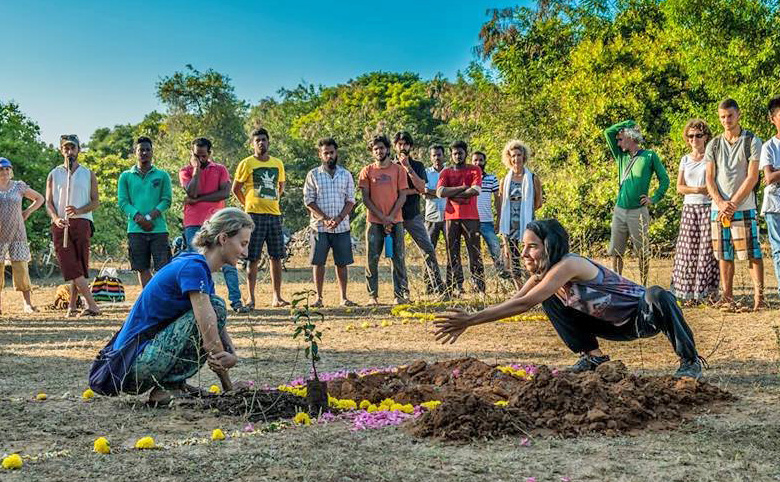Contribution According to Capacity

Will there be compulsory community activities in Auroville?
Nothing is compulsory.
- The Mother, CWM XIII, 196
And they don’t pay for their food, but they should offer their work or their produce: those who have fields, for example, should give the produce from their fields; those who have factories should give their products; or one gives one’s labour in exchange for food.
That in itself eliminates much of the internal exchange of money. And for everything we would find things like this. Basically, it should be a city for study, for study and research into a way of life which is both simplified and in which the higher qualities will have more time to develop.
It is only a small beginning.
Mother goes through the text sentence by sentence.
“Auroville will be a self-supporting township.”
I want to insist on the fact that it will be an experiment, it is for making experiments―experiments, research, study. Auroville will be a city that will try to be, or will tend to become, or attempt to be “self-supporting”, that is to say…
Autonomous?
“Autonomous” is understood to mean some kind of independence which breaks off relations with others, and that is not what I mean.
For example, those who produce food, like Aurofood―of course, when we are 50,000 it will be difficult to provide for all the needs, but for the moment we are only a few thousand at most―well, a factory always produces far too much, so it will sell outside and receive money. Aurofood for example wants to have a special relationship with the workers―not at all the old system, something which would be an improvement on the communist system, a more balanced organisation than sovietism, that is, something which does not err too much on one side at the expense of the other.
There is one thing I wanted to say: the participation in the well-being and life of the town as a whole is not something calculated on an individual basis; that is, this individual should give so much, it is not like that. It is calculated according to the means, the activity, the capacity for production; it is not the democratic idea which cuts everything up into equal pieces, which is an absurd machinery. It is calculated according to one’s means: one who has much gives much, one who has little gives little; one who is strong works hard, one who is not strong does something else. You see, it is something truer, deeper. That is why I make no attempt to explain now, because people will start to make all kinds of complaints. All this must come about automatically, so to speak, with the growth of the city, in the true spirit. That is why this note is extremely concise.
For example, this sentence:
“All who live there will participate in its life and development.”
All who live there will participate in its life and development according to their capacities and means, not mechanically―so much per unit. That’s it, it must be something living and true, not a mechanical thing; and according to each one’s capacities: that is, one who has material means, such as those provided by a factory, should give in proportion to its production, not so much per individual, per head.
“The participation may be passive or active.”
I do not understand what “passive” means; I said it in French and it has been put into English. What could that mean, “passive”?… It would be something more like planes or different levels of consciousness.
You meant that those who are wise, who work within, do not need to…
Yes, that’s it. Those who have a higher knowledge do not need to work with their hands, that is what I meant.
“There will be no taxes as such, but each one will contribute to the collective welfare in work, kind or money.”
So that is clear: there will be no taxes, but each one will have to contribute to the collective welfare by his work, in kind or in money. Those who have nothing but money will give money. But to tell the truth, “work” can be inner work―but one cannot say that, because people are not honest enough. The work can be an occult, completely inner work; but for that, it must be absolutely sincere and true, and with the capacity for it: no pretension. But not necessarily a physical work.
“Sections like industries which participate actively will contribute part of their income towards the development of the township; or if they produce something (like foodstuffs) that is useful to the citizens, they will contribute in kind to the township, which is responsible for feeding its citizens.”
This is what we were just saying. The industries will participate actively, they will contribute. If these industries produce articles which are not constantly needed and therefore in amounts or quantities that are too great to be used within the city but which will sell outside, they, of course, should participate with money. And I give food as an example; those who produce food will give what they produce to the town―in proportion to what they produce, of course―and the town is responsible for feeding everyone. That means that people will not need to buy food with money; but it must be earned.
It is a sort of adaptation of the communist system, but not in a spirit of levelling; according to the capacity, the position―not the psychological or intellectual, but the inner position of each one.
What is true is that materially every human being has the right―but it is not a “right”… The organisation should be such, should be so arranged, that the material needs of everyone are assured, not according to ideas of rights and equality, but on the basis of the minimum needs. And once that is established, each one should be free to organise his life according to―not according to his financial means, but his inner capacities.
- The Mother, CWM XIII, 30 December 1967

Unselfishness is the first need to participate in the creation of Auroville.
X, Y and Z will be the partners in this project to construct a factory named Auro-steel. They will invest various sums of money. How should the profits be distributed? In proportion to their investment or some other way? X’s will be the biggest share. All told it needs Rs. 2 lakhs.
They do not seem to know that in Auroville after all expenses are paid, including their own maintenance, the profits go to the town.
Blessings.
Auroville is not a work of charity. A night spent in Aspiration is equivalent to a day’s work
Everyone should work at least five hours a day including Sundays. Working for oneself is not working for the community. Each member of the community should have an activity that corresponds to the needs of Auroville.
Notice drafted at Mother’s request and signed by her, 20 February 72
